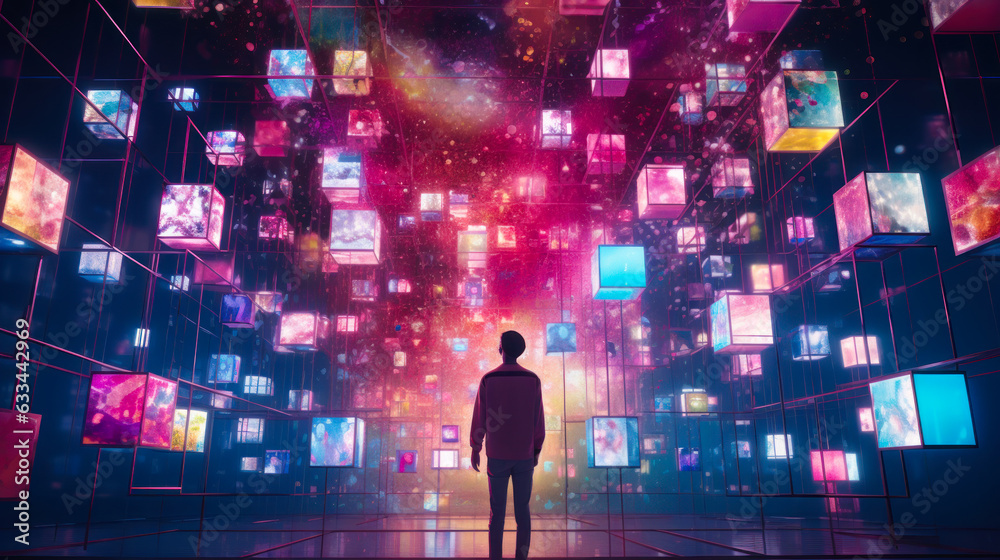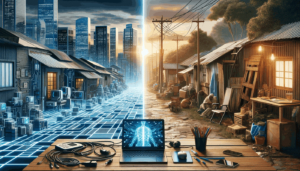
Technology Has Long Way To Go
Debate#5 : Technology has led to a more equitable society

To me technology means communication. I know it has different meaning to every individuals. Airport is the place where I feel the value of technology. Whenever I travelled and waited in the transit area or arrived in destination, first thing I did is connecting wi-fi. I am sure all of us did that. One time I was in Dubai and despite of having wi-fi connection, I could not talk with my family. Apparently from Dubai we can send text or voice message, but can not make a video call. I never felt so helpless. So here is the dilemma about technology and equitable society.

https://www.entrepreneur.com/money-finance/the-15-most-popular-online-payment-solutions/286006
Technology holds immense potential to create a society more equitable. In rapidly evolving world, the role of technology is undeniable. From dawn to dusk, in every aspects of the world depends on it. It creates opportunities for all. Technology covers education, health care, business, scientific invention, farming, banking, entertainment, and communication all these sectors. Access to the internet and mobile technology brought revolutionary changes.

Farmers from rural areas can gather information that will enhance their skills and yield produce more than before using technology.
Students can use internet and different educational tools to upgrade their knowledge and skills. For example they can learn different language by using learning app such as Duolingo. More over students with disabilities can use the technology and prepare for the real world. Children from remote area can develop themselves by virtual learning.
Youtube is a popular platform to obtain various information. Ranging from educational, cooking, make-up and skin care routine, legal information and many more. You need to know anything? You just name it, look up online, there you go….. You can find countless videos about anything. Nowadays influencer, vlogger, and entertainer these are most hyped profession.
Telemedicine and digital health technologies have transformed healthcare delivery, making it more accessible and affordable. Remote consultations and health monitoring apps allow people in underserved areas to get basic medical care without the need to travel long distances.
Online shopping sites are pretty popular these days. Amazon and ebay are world famous sites for online shopping. Facebook market place is also a place where anyone can find a place to rent and buy used items in cheaper price.
So yes technology can create an equitable society. But we live in a real world. Not everyone has the same capacity and access to the technology. Some schools even does not have a single computer. In a small village of Ghana, a teacher of information and communication technology (ICT) teaches technology in his class by drawing on blackboard. Thankfully they have a passionate teacher like Richard. But everyone is not that fortunate. If people does not have the ability to get the internet, they are already on a loosing side of a battle. Where one side is developing and reaching space, the other side is barely making lives.
Research shows adolescents belong to high socioeconomic status and their father have better education, use computer intensively and accomplish good academic record. On the other hand, children who comes low socio economic income family, where father is not well educated, involves with digital gaming and poor academic performance. The study also finds children with opportunities continue higher education. Students without the access to the internet can fall behind than the others. That can only create frustration and dissatisfaction.

https://medium.com/@xtn13/digital-divide-and-health-equity-overcoming-technological-barriers-dc8c58187f48
Digital divide is a social inequality which simply explains not everyone have the same opportunity to access the technology. This gap not necessarily occurs due to economical insufficiency. Age, gender and geography lot of things can create this gap.
I have come from Bangladesh with the population of 171.2 million. Unbelievable or not cell phone and internet is easily accessible with minimum cost. Still many people can not utilize the technology in advance way. For last couple of weeks, students are protesting for their rights and situation got out of hand. To my best of knowledge what I know, internet is completely shut down for last 2 days….
I do not know what is going on back in my home. Due to the lack of internet nobody is able to share the news or updates of Bangladesh right now. I haven’t been able to reach out to my family, which is stressful. So I can say from my personal experience what technology means to me or people like me. I guess lots of factors determine whether technology can make society equitable. We need technology in our lives and we can not take it for granted. Hence it is difficult to say that technology led to more equitable society. But let’s hope one day we can “Cover The Gap”.




I think that because we’re all in education much of the discussion found it’s way towards the classroom and whether it’s more equitable for students, but the topic itself specifically asks about society, and I think you we’re able to differentiate that where a lot of us could not. I for one hadn’t considered all of the positive aspects technology has for things outside education such as farmers, medical care, or shopping. And at the same time I hadn’t considered that the digital divide is a impacting everyone in the world, not just students. While the conversation was geared towards the classroom I think the answer is the same no matter the lens we’re looking at it through. Technology has the ability to make things more equitable, but accessibility and understanding of how to use it is where it tends to fall short.
Thanks for sharing Bithy! And I’m sorry to hear about what’s going on in Bangladesh. I hope you’re able to get in touch with your family soon!
Hi Bithy. This was an excellent reflection on the debate and I do understand when you speak about Bangladesh. Both devices and connectivity are a problem and need to be addressed. Technology and its equitable distribution is something I am waiting for myself.
Your post thoughtfully examines the limitations and potential future advancements in technology. The main takeaway for me is the recognition that while technology has made significant strides, there is still much progress in areas like accessibility, ethical considerations, and equitable distribution.
Question: Given technology’s current limitations, what do you believe are the most critical areas that need improvement to ensure that technological advancements benefit all sectors of society equitably?